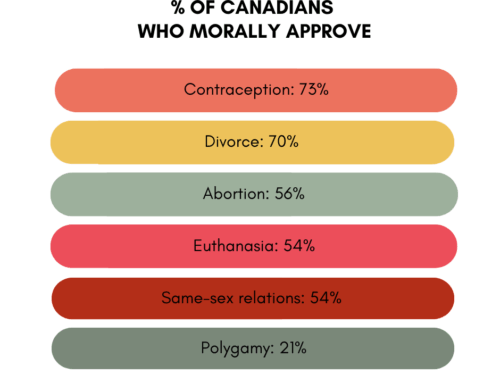
From the editor’s desk
I’ve often said that when it comes to euthanasia, in our current legal and political climate, “safeguards” is just another name for discrimination. If the state tries to protect minors or people suffering from mental illness or non-terminally ill individuals by outlawing a lethal procedure that might be imposed upon a highly impressionable person or to save that person from his own transient negative thoughts, there will be minors and mental health patients – or at least activists who claim to speak on their behalf — that scream that they are being discriminated against. Inevitably, it always seems, that whatever safeguards governments put into place initially on euthanasia get thrown out by courts or over-ridden within a few years by either common medical practice or amendments to the original law.
While it is understandable to fight for as many safeguards to be put into place in a euthanasia law as possible, we should not fool ourselves that these are anything but temporary measures. It is imperative that we overturn the euthanasia law, with a constitutional amendment if necessary, for as long as a single person cannot access euthanasia because of measures that might protect vulnerable individuals from being killed, there will be howls of indignation that the law discriminates. The end goal for the euthanasia lobby always has been and always will be euthanasia-on-demand. Our goal must be the protection of every human life from the moment of conception/fertilization to natural death, without exception.
I often wonder, however, if many of the politicians, doctors, and others who support a limited euthanasia license, at least initially, honestly believe the safeguards are necessary and helpful. Or do they support these limits knowing that they are essentially temporary weigh stations to the final goal of death-on-demand for anyone who wants it. Of course, we cannot know what is their hearts, nor is it fair to lump them all together; there are certainly wily euthanasia proponents who understand that the public and medical profession might have some scruples about killing certain classes of people (children, the mentally ill, those who have non-terminal diseases but do not want to go through treatment), and must be slowly acclimatized to widespread euthanasia. But I fear that there is a larger group of euthanasia-skeptics who feel that there are some people who should have the right to end their life and the state should not interfere, but we should protect some classes of people from making an irreversible, tragic mistake. (One of my colleagues noted sardonically during a conversation in the office that the default position of the euthanasia lobby is that we should assume that people want to die and facilitate that as quickly as possible; never mind that unlike many public policy errors, there is no opportunity to fix the mistake.)
Let me make a connection that I do not think is that much of a stretch. There were folks in 2020 that were euthanized who did not qualify under the law of the land at that time; medical practitioners – and I use the term reluctantly – killed patients who were not terminally ill and whose deaths were not imminent, as the law required. Yet they faced no sanction. I believe this will continue; flouting the modest and vague safeguards in place under Bill C-7 will become commonplace – it happened in Belgium and the Netherlands, it will happen here. So: an analogy that I think makes sense. The Trudeau Liberals ran on a platform of deficit spending in 2015 but vowed to follow a “fiscal anchor” that would put a ceiling on how much new debt they would take on if they formed government, and that ceiling that was tied to a percentage of the Gross Domestic Product. They ignored that anchor and created a new one in their very first budget. Four budgets later they dropped all talk about fiscal anchors and tethered their spending to “fiscal guardrails.” One pandemic later, and they were ignoring their own fiscal guardrails. They are constantly resetting the standard by which to judge them on deficit spending. One might begin to wonder if they ever intended to limit their deficit spending. Likewise, they are resetting the standard by which we decide whom doctors should be permitted to kill. Forgive me for thinking that a government that hails and then ignores its own fiscal anchors and fiscal guardrails is unlikely to recognize or care much for the moral anchors and guardrails that they have put in place, especially since they were so eager to replace the moral anchors and guardrails that protected innocent human beings from being killed in the first place.
The Spectator
I subscribe or regularly purchase too many magazines, but my favourite, quite easily, is The Spectator. One of my favourite books of 2020 was 10,000 Not Out: The History of the Spectator 1828-2020 by David Butterfield (Unicorn, $38, 256 pages), which marked the milestone (10,000 issues) that no other weekly has. The magazine is often thought of as both a reflection and mover of British Tory opinion, and indeed few publications have been as influential as the 192-year-old publication. That said, as Butterfield shows, it was often an irritant to Conservatives when they were in power, and they published any number of points of view and was anything but a house organ. Under its 29 editors, including current British Prime Minister Boris Johnson, it has been a reliable promoter of classical liberal values such as freedom of the press and democracy; it has also been at the forefront of campaigns to decriminalize homosexuality and end the death penalty. Yet, its principal attraction has been its superb writing and its coverage of arts and manners, from passionate debates about grammar and punctuation to its extensive reviews of books and theatre. The Speccie’s influence extends beyond its readers, with the magazine popularizing terms such as The Establishment and Nanny State. This slim volume looks at eight different ages of the magazine (“The Moral Maze,” “Spectatorial Certitude”), but as Butterfield demonstrates, the magazine, in the words of Boris Johnson, both sets and debunks the political agenda.
A new feature
With this issue, we begin a new, I hope monthly, feature: “Books of the day.” The title is taken from Stephen Spender’s column in The Spectator. It will feature shorter books reviews. It appears on page 11 this month.
–Paul Tuns




